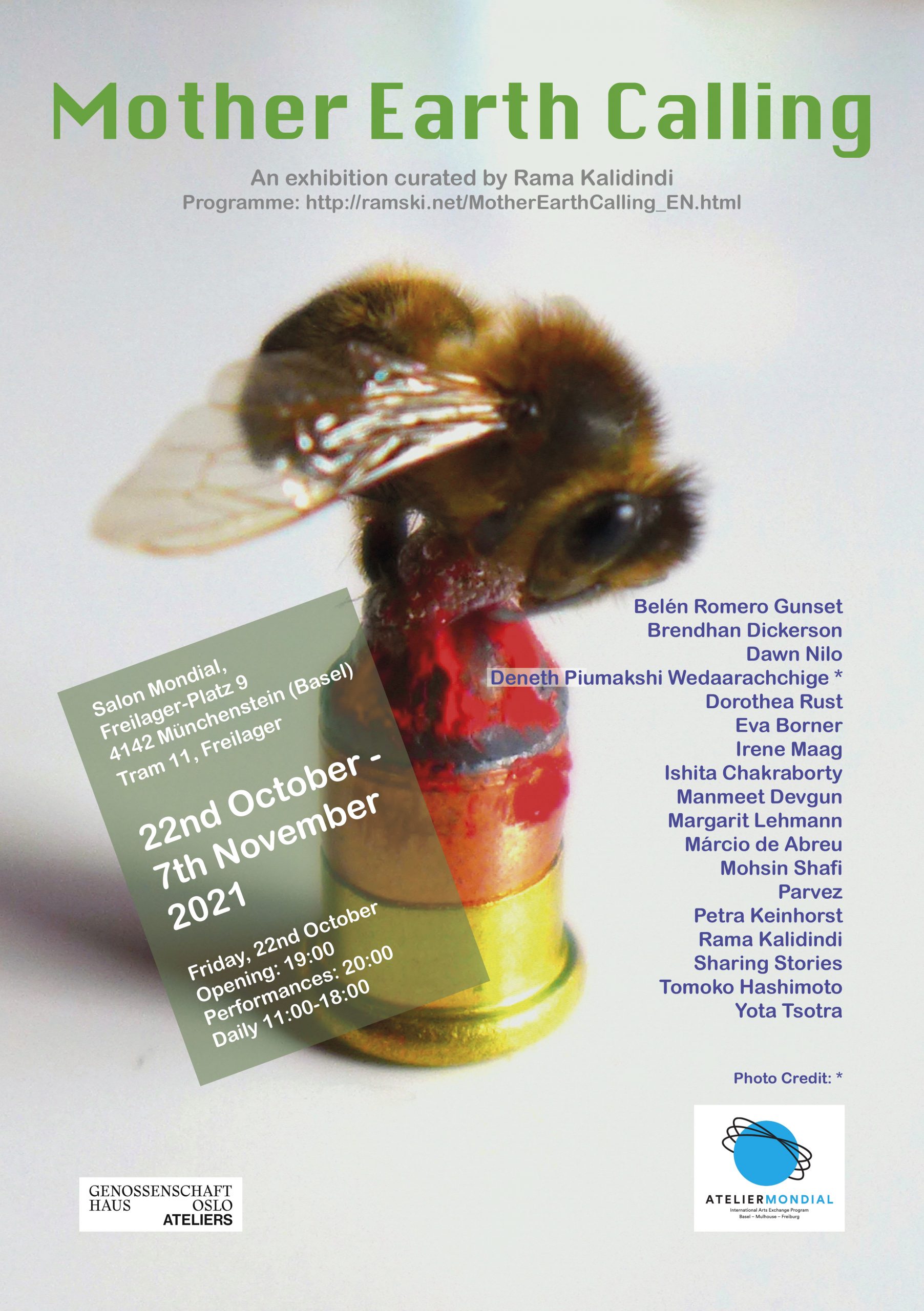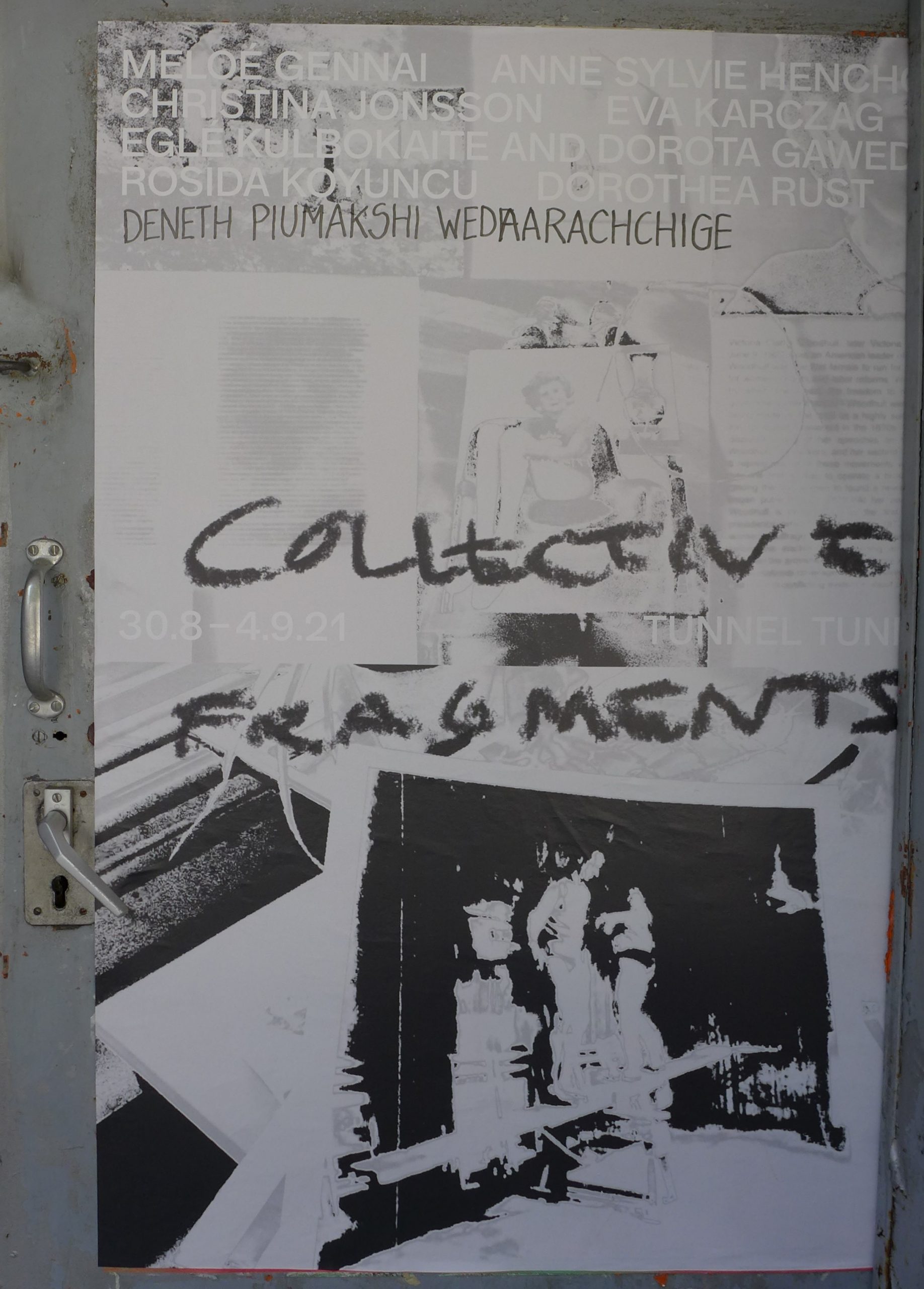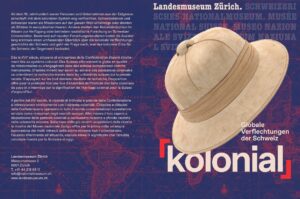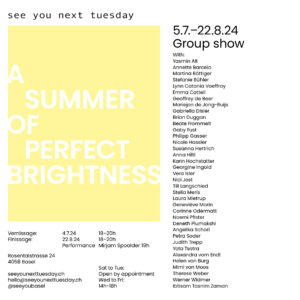Author: Deneth Piumakshi Veda Arachchige
Bangkok Art Biennale 2024
colonial
Switzerland’s Global Entanglements
Exhibition
Swiss citizens and companies were heavily involved in the colonial system from the 16th century onwards. Some Swiss companies and private individuals took part in the transatlantic slave trade and earned a fortune from the trade in colonial goods and exploitation of slave labour. Swiss men and women travelled the globe as missionaries. Other Swiss, driven by poverty or a thirst for adventure, served as mercenaries in European armies sent to conquer colonial territory or crush uprisings by the indigenous population. Swiss experts also placed their knowledge at the disposal of the colonial powers. And the racial theories prevalent at the time, which were used to justify the colonial system, formed part of the curriculum at the universities of Zurich and Geneva.
The exhibition at the National Museum Zurich draws on the latest research findings and uses concrete examples, illustrated with objects, works of art, photographs and documents, to present the first-ever comprehensive overview of Switzerland’s history of colonial entanglement. And by drawing parallels to contemporary issues, it also explores the question of what this colonial heritage means for present-day Switzerland.
The exhibition includes objects, images and terms, which are racist and discriminatory. They are historical testimonies to the then reigning Western notion of superiority. Captions featuring brackets offer additional information on the exhibits in question. If you have any queries, please go to info@nationalmuseum.ch
Of Love and War
Tamil (Hi-)Stories from India and the World
8 October 2022 – 7 May 2023
Linden-Museum Stuttgart, Germany
The exhibition shows the history and present of Tamil culture. Over 80 million people in India, Sri Lanka and other parts of the world identify themselves as Tamils: They share the same language, Tamil, which originated in southern India. The exhibition seeks to bring their history and stories to life in a variety of ways, as different people share their narratives about Tamil cultures and identities. Tamil social movements, performing and visual arts, aspects of everyday culture and religious diversity are presented from different perspectives. The exhibition features archaeological objects from the Caṅkam period, a selection of bronzes from the time of the Cōḻa dynasty (9th-13th centuries), as well as works by artists of the Madras Art Movement from the second half of the 20th century. With the cross-caste Bhakti mysticism of the Middle Ages, the “Dravidian Movement” of the 20th century or the struggle of the Liberation Tigers of Tamil Eelam for an independent Tamil state in Sri Lanka, which lasted until 2009, social aspects of cultural history are also illuminated.
Love and War, akam and puṟam
The Tamil language is a language of poetry. It has been spoken for over 3,000 years and conveys the culture and values of the Tamil people. Poets have always been held in high esteem and considered moral authorities. They joined together in so-called Caṅkams and created literature that is influental today and unites the speakers of Tamil beyond states, castes and religions. This early poetry in particular knew two main genres of artistic expression: akam and puṟam. Akam means the internal, the personal, that which is about love; puṟam, on the other hand, is the external, the public, that which is about war. These two sides are present throughout the exhibition – in the stories told as well as in the exhibits on display. Tiṇai also appear again and again, referencing “inner landscapes” and emotions associated with them in poetry, art, and pop culture with images from the landscapes of southern India.
Religious diversity
The exhibition also allows visitors to experience the great religious diversity that exists in southern India. In addition to elegant statues from Cōḻa temples, a village shrine to the god Aiyanar, and the construction of colorful Kolu figures, historically significant objects from the heyday of Buddhism and Jainism are also on display. Muslim and Christian culture were also present in the south of India at an early stage and had a weighty influence on Tamil culture and art. For example, the Sufi order, established by Muslim traders, was very popular because of its intensive exchange with Hindu spirituality. Shrines over the graves of famous Sufis, known as dargahs, developed into transreligious pilgrimage sites for Hindus, Muslims and Christians.
Worldwide collaborations
The exhibition is curated by Dr. Georg Noack (Linden-Museum Stuttgart) and Dr. M. D. Muthukumaraswamy (National Folklore Support Centre Chennai). In addition, we have invited partners from different parts of the world to contribute their views on aspects of Tamil culture, art, history and religions. In different modules – poetry, social movements, art, popular culture, religion and everyday life – Of Love and War thus creates a dense description from diverse positions and perspectives. We also owe many of the objects shown in the exhibition to worldwide collaborations. In addition to exhibits from our collection, we are able to show you loans from the Museum Rietberg Zurich, the Musée National des Arts Asiatiques Guimet in Paris, the Museum für Asiatische Kunst Berlin and the Danish National Museum in Copenhagen. Also included in the exhibition are ancient inscriptions, manuscripts and prints from the Leiden University Library, the Rojah Mutthiah Research Library Chennai, the archive of the Francke Foundations Halle and the Württemberg State Library Stuttgart.
https://12.berlinbiennale.de/
The opening of the 12th Berlin Biennale takes place on Friday, June 10, 2022. All exhibition venues will be open from 7 to 10 pm, admission is free.
Exhibition
On the occasion of the 12th Berlin Biennale for Contemporary Art, titled Still Present!, artists from around the globe engage with the legacies of modernity and the resulting state of planetary emergency. In addition to their works, the exhibition features historical documents, including political and activist publications from the Archiv der Avantgarden – Egidio Marzona (AdA). The contributions reveal connections between colonialism, fascism, and imperialism, and propose decolonial strategies for the future, oriented around a set of questions: How can a decolonial ecology be shaped? What role can non-Western feminist movements play in the reappropriation of historical narratives? How can the debate on restitution be reinvented beyond the return of plundered goods? Can the field of emotion be reclaimed through art?
With works by:
Alex Prager • Amal Kenawy • Ammar Bouras • Antonio Recalcati, Enrico Baj, Erró, Gianni Dova, Jean-Jacques Lebel, Roberto Crippa • Ariella Aïsha Azoulay • Asim Abdulaziz • Basel Abbas and Ruanne Abou-Rahme • Binta Diaw • Birender Yadav • Calida Garcia Rawles • Christine Safatly • Clément Cogitore • DAAR – Sandi Hilal and Alessandro Petti • Dana Levy • Đào Châu Hải • David Chavalarias • Deneth Piumakshi Veda Arachchige • Driss Ouadahi • Dubréus Lhérisson • Elske Rosenfeld • Etinosa Yvonne • Florian Sông Nguyễn • Forensic Architecture • Haig Aivazian • Hasan Özgür Top • Imani Jacqueline Brown • Jean-Jacques Lebel • Jeneen Frei Njootli • Jihan El-Tahri • João Polido • Khandakar Ohida • Lamia Joreige • Lawrence Abu Hamdan • Layth Kareem • Mai Nguyễn-Long • Maithu Bùi • Marta Popivoda/Ana Vujanović • Mathieu Pernot • Mayuri Chari • Mila Turajlić • Mónica de Miranda • Moses März • Myriam El Haïk • Ngô Thành Bắc • Nil Yalter • Noel W Anderson • Olivier Marboeuf • Omer Fast • PEROU – Pôle d’Exploration des Ressources Urbaines • Prabhakar Kamble • Praneet Soi • Raed Mutar • Sajjad Abbas • Sammy Baloji • Simone Fattal • Susan Schuppli • Susana Pilar • Sven Johne • Taloi Havini • Tammy Nguyen • Taysir Batniji • Tejswini Narayan Sonawane • Temitayo Ogunbiyi • The School of Mutants (Boris Raux, Hamedine Kane, Lou Mo, Stéphane Verlet Bottéro, Valérie Osouf) • Thùy-Hân Nguyễn-Chí • Tuấn Andrew Nguyễn • Uriel Orlow • Yuyan Wang • Zach Blas • Zuzanna Hertzberg
The 12th Berlin Biennale takes place from June 11 to September 18, 2022 and is curated by Kader Attia in collaboration with Ana Teixeira Pinto, Đỗ Tường Linh, Marie Helene Pereira, Noam Segal, and Rasha Salti.
The exhibition is on view at Akademie der Künste, Hanseatenweg and Pariser Platz; Dekoloniale Memory Culture in the City; Hamburger Bahnhof – Museum für Gegenwart – Berlin; KW Institute for Contemporary Art; and Stasi Headquarters. Campus for Democracy.

Collective Fragments









